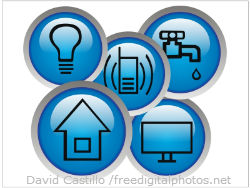|
Get Free Moving Quotes
|
|
How to Compare Utility Services in Your Town |
|
Rating : 0.0/5
294 Views
|
|
|
|
|
|
If you are changing your home, you'll need to disconnect your current utilities and then find and purchase new services. If you are moving to a new town, your utility options could be very different from what you had in your old town. How do you compare utilities when moving into a new town?
What are utilities?  "Utilities" is a blanket term for any service provided to your house that makes it work as a home. They allow you to utilize your house. This goes beyond just electricity. If you want to compare your options for all of your utilities in your new home, you need to remember everything that is publicly available to your house. "Utilities" is a blanket term for any service provided to your house that makes it work as a home. They allow you to utilize your house. This goes beyond just electricity. If you want to compare your options for all of your utilities in your new home, you need to remember everything that is publicly available to your house.
Utilities to consider:
- Electricity
- Water/sewage
- Heating
- Garbage/recycling pickup
- TV service
- Phone service
- Internet service
Compare your options Some of these services are provided for free when you purchase a new home. Sewage and pickup services are usually free and tied to the specific town you are living in. It is rare that you'll get multiple options for these basic services but you could research your options by contacting your town's municipal center. You could have some flexibility in choosing your garbage and recycling schedule.
TIP: Remember that you need to research your new utilities well before moving in because it may take two weeks to process payments and activate your services. For water, heating, and electricity, you usually have a wider range of options. To find what is available to you, Google search for utility companies that serve your specific town. Most electric services are dictated by the province or territory they are in, so also visit the specific provincial government website to compare all of your utility options.
Here are some things that you need to ask when comparing plans:
- What is the price?
 - What services are truly going to reach your home?
- Are there greener options?
- Do you need city water or does your home have a well?
- If you invest in solar panels, how does this affect your electric and/or heating costs?
- Do you want to use oil, electricity, natural gas, or propane for your heating system?
- What type of heating is possible in your home? Is it worth renovating to change the heating fuel?
- Are you comfortable with the dangerous associated with certain heating and electrical plans?
Choosing your heating fuel is especially complicated because there are so many options. However, your home is probably designed for a particular fuel already, so changing it would be costly.
Here is a brief description of the four most common fuels:
- Oil: Oil burns in your furnace, which heats circulated water for warmth. This method is effective and relatively safe, but oil is now so expensive that few homes continue to use this once popular heat source.
- Electricity: Electrical coils do the job of heating your home. This is not as effective as using combustible materials for heating, but it is the safest and cheapest (in the long run) option.
- Propane: Propane acts as the burning fuel in your furnace. It is in the middle of the price spectrum. It can be quite dangerous if it leaks, however.
- Natural gas: This option is currently the most widely used. It is a cheap combustion system. Natural gas is abundant now, but the prices may go up in the future if the resource becomes scarce. There also is a bit of danger associated with leaks.
TV, internet, and phone Your less essential utilities are TV, internet and phone services. In modern society, these services are practically as important as heat, so you need to choose them wisely. You have the widest variety of options for these services, since it has become a big business selling them to customers. There is a lot of information online reviewing the various companies and plans. There still may be some regional restrictions, but for the most part you can get anything if you are willing to pay.
- Many companies offer packages that provide all three services together for a discount.
- If your entire family already has cellphones and a good plan, you may choose to opt out of land-line phone services for your home.
- Cable has a wide variety of options. Be wary of paying for many channels that you will never watch. Cable bills can be ridiculously expensive.
- Internet access is very important in modern society, but your needs should be considered when purchasing a plan. Your connection needs to be top notch if you plan on steaming videos and downloading things often. If you just use the internet for e-mail and reading the occasional article, a cheaper service will do.
Comparing utilities in your town is all about exploring the options available to you in your specific location. A little research goes a long way to get the right utilities for your home whether you are moving or just looking for a change. |
|
 |
Author : Mike Sannitti
on November 6, 2014
TopMoving.ca - Moving Expert
|
| |